You may find it helpful to read through these Tips for Traveling in Italy. If you’re planning a trip to Italy, there are a lot of things you need to know!
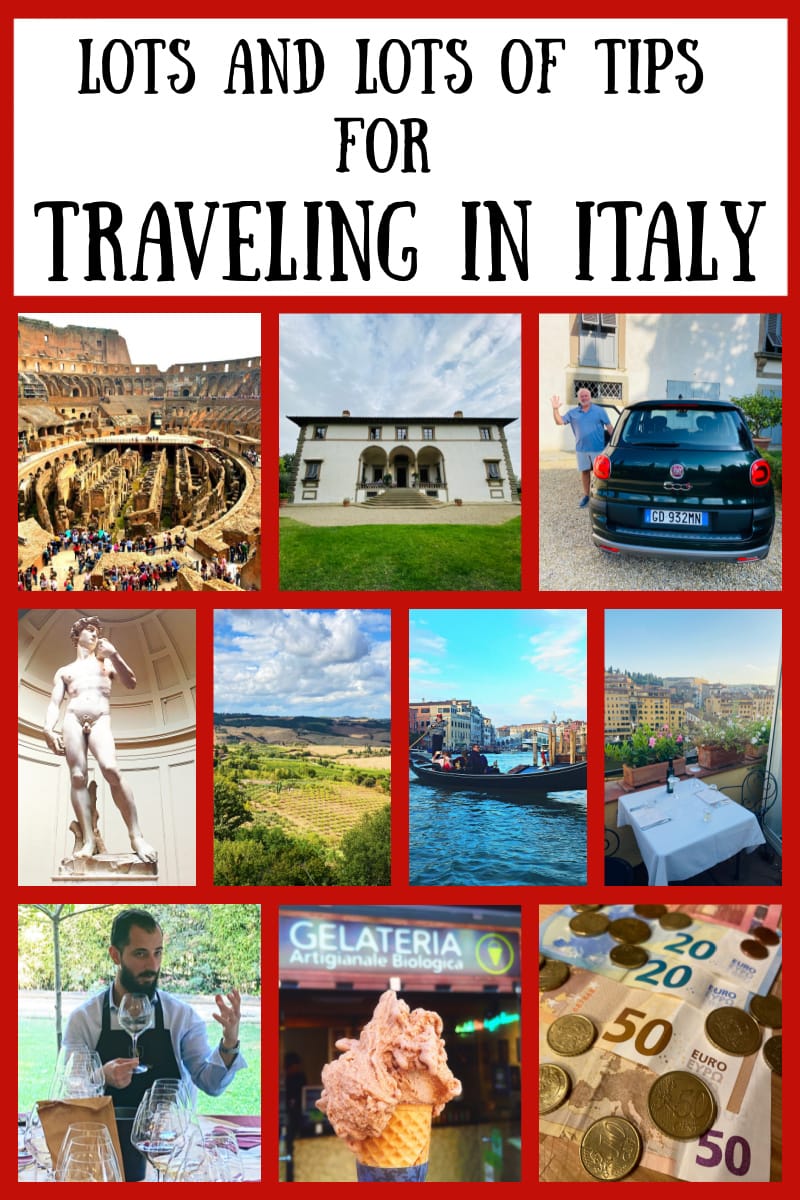
From the money needed to shopping tips, food and lodging suggestions, activities and lovely towns and villages to visit… there is so much to know and learn about traveling to the country of Italy. I’ve visited Italy now five times, and I’ll continue to go again over the years to come. Read through my travel tips, and please feel free to share some Italy travel tips of your own in the comments at the end of this post. Enjoy!
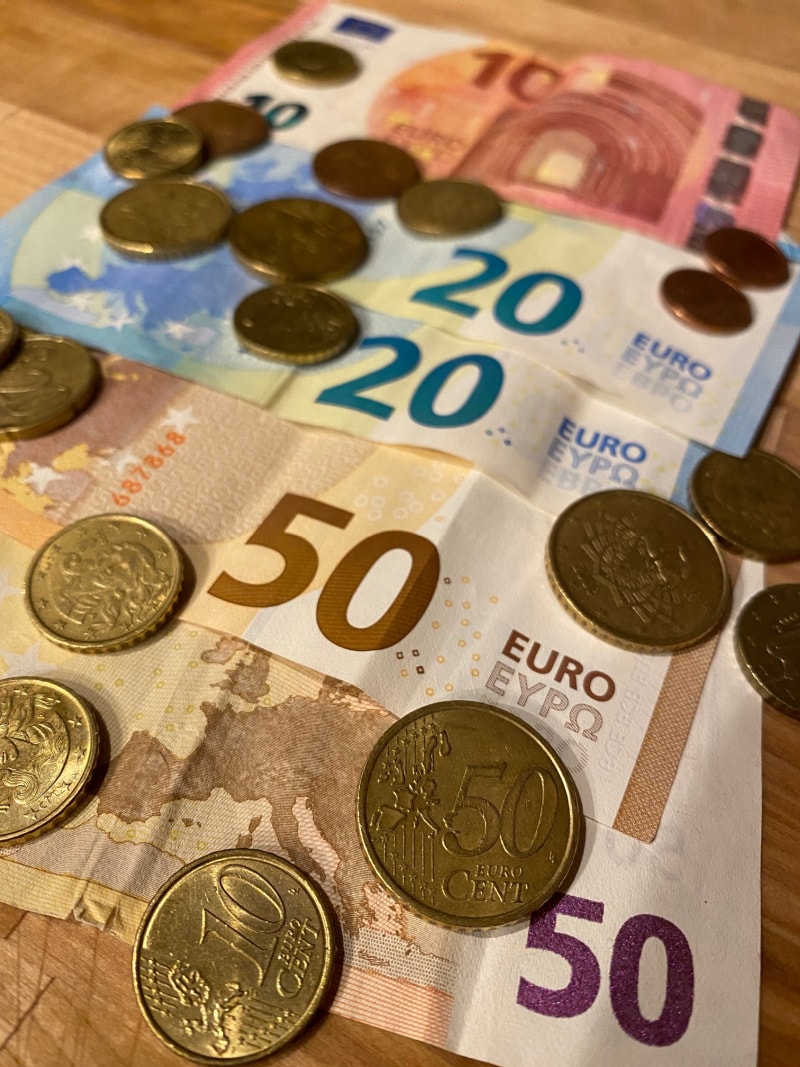
Can you use American dollars in Italy?
No. Imagine if you were a European in the US, and you tried to pay someone in euros. That’s the same situation in Italy. Italy uses euros. Many places welcome credit cards, but there are many instances where you will need cash (euros) too. Tips, some taxis, entry into attractions and public bathrooms all may require euros instead of a credit card. It’s handy to have some 50 cent euros in your pocket while sight-seeing, just in case you need to use a public bathroom. There’s usually a coin machine calling for .50 euro to enter a bathroom (unless you’re able to slip into a swanky hotel and use theirs).
Bring your bank ATM card to Italy with you in case you need to get more money. If you use your ATM card in Italy, you can use it to get euros out of any ATM. The bank I used most recently charged me $3.00 for the transaction. Your bank will do the exchange for you and charge your account the appropriate amount. For example, the rate today is that one dollar equals .85 euro.
It’s also possible to order some euros from your bank to bring with you before you leave on your trip. Give that process at least a few days. Pick up a hidden money belt or travel neck pouch in which to keep your money and passport secure as you navigate the crowds while sightseeing.
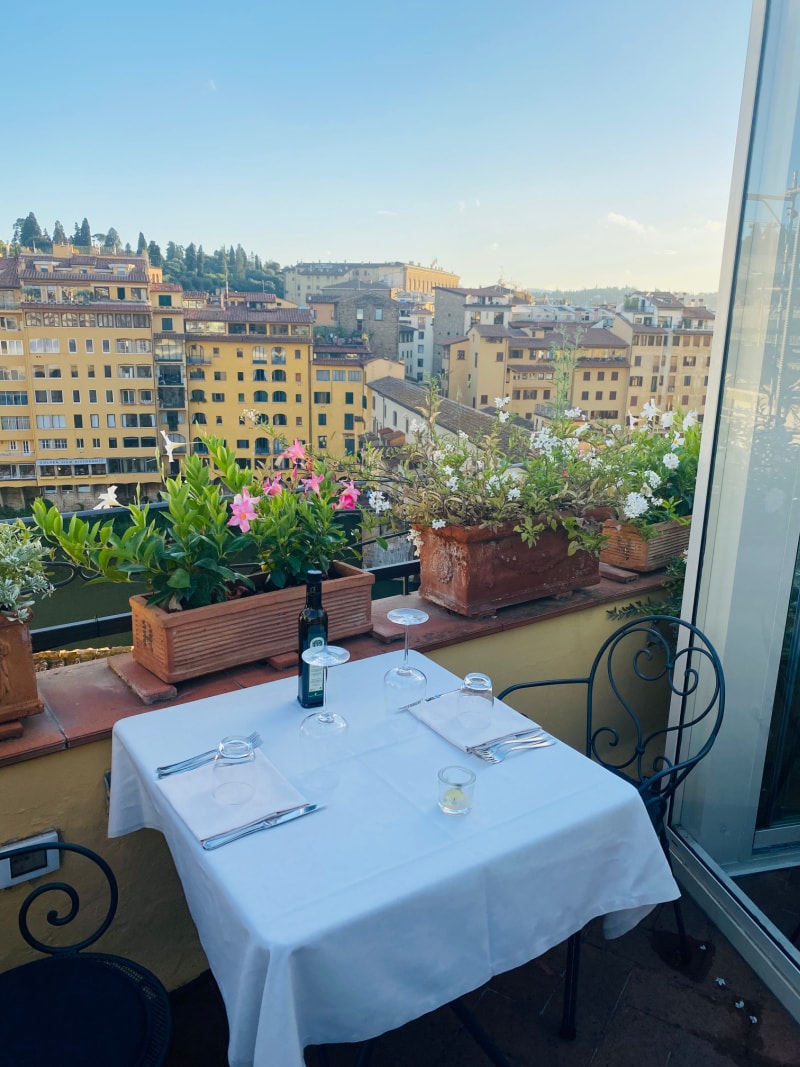
What are the tipping practices in Italy?
Despite all of the recommendations below, we usually tip everyone when we’re in Italy. It just doesn’t feel right NOT to tip for services. But you should know that there are many instances where a tip is not expected, and tipping in general in Italy is not nearly as generous as the United States.
- Restaurants: Look at your restaurant bill to see if they have charged you a service fee that is either called coperto or – for larger groups – servizio. If so, that’s a service charge built into the bill and you should not be tipping on top of that. Waiters in Italy are paid differently than waiters in the US. They get a monthly salary for waiting tables. Tips are not expected at all (certainly not a percentage like you do in the US). At the most, you can round up the euros owed and leave some spare change (maybe one euro per person). That’s the Italian way.
- Cafes and bars: Grabbing a coffee or a cocktail, there is no need to tip. If you are seated at a café or bar and being serviced by a waitress, it’s okay to leave some small coins with your bill.
- Tour guides: Depending on how long your tour is and how good your tour guide is, tip between 5 and 10 euros to the guide.
- Hotel staff: Tip the bellman 1 euro per bag to bring your luggage to your room. Tip housekeeping 1 euro per day for cleaning. And if the hotel concierge goes out of their way to find you a special experience, consider tipping them 5 euro or more.
- Don’t tip: Although it may feel wrong not to tip (because we are accustomed to do so!), taxi drivers, spa technicians and hairdressers are not usually tipped at all. Of course, if you receive amazing service for anything you do in Italy, you can consider tipping more than expected.
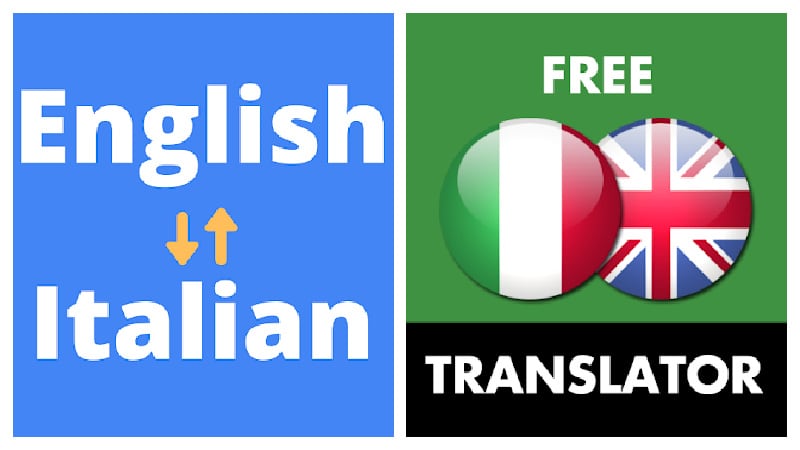
Is it okay to speak English in Italy?
Yes. Italians (especially in the larger cities) are very gracious to English speakers, and they do their best to use their English to communicate with you. It’s polite to know a few phrases that you can use while traveling in Italy. Italians appreciate the effort! Check the App Store, and I suggest you download an English to Italian translation app to your phone so you can enter phrases into the app and it will translate and give you the words to say using Italian. It’s also super helpful that the apps give you a “speaker” option so you can listen to how the Italian words are pronounced as well. There are many fun You Tube videos that discuss proper Italian pronunciation.
- Thank you (grazie = grazi-ay… three syllables!).
- Good Day (buongiorno = boo-on-gior-no) when you enter and leave an establishment during the day
- Good Evening (buona sera = bona-sair-ah) when you enter and leave an establishment in the evening
- Hello or Goodbye (ciao = chow)
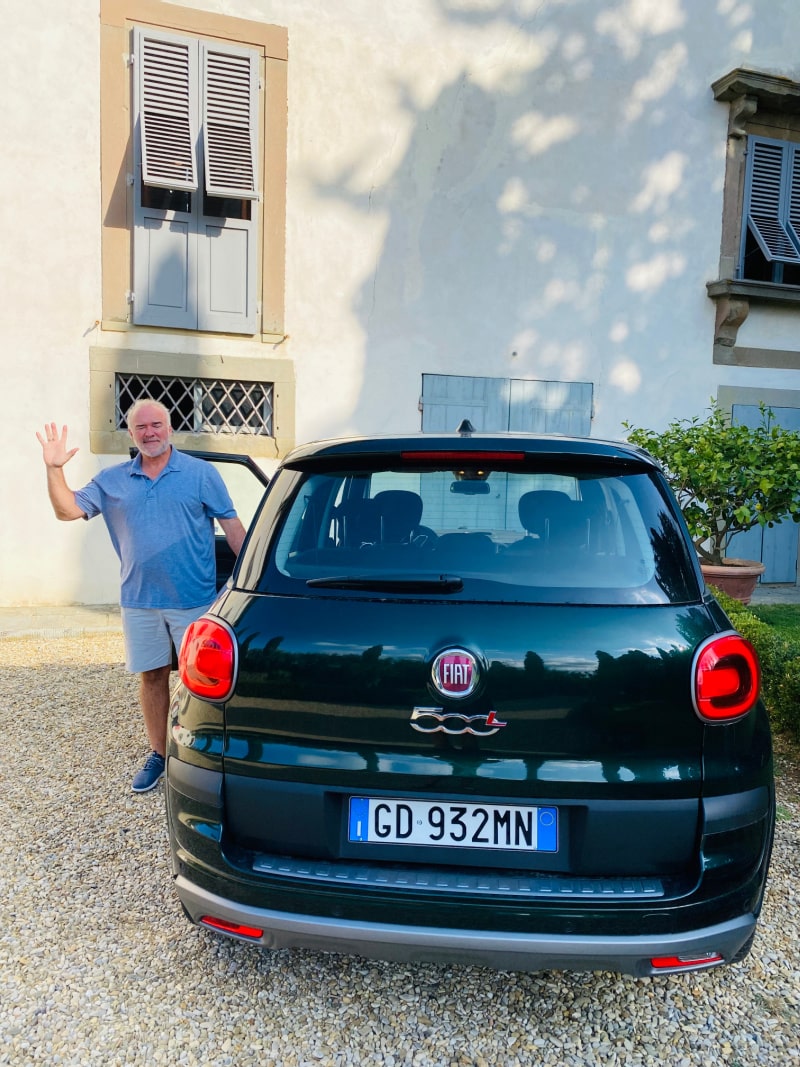
What’s it like to drive in Italy?
We have rented a car twice in Italy, and we’ve learned a lot. First of all, you can pick up your rental car at the airport- just like you do in other cities. Reserve it ahead of time. We always go with one of the companies that we rent with in the US (National or others), just in case there are problems. They might be easier to reach than an Italian based company. Keep in mind that if you have a flight that arrives at 6am, the car rental place probably does not open until 7am. In Italy, the cars are generally smaller (though there are larger options too) and you have the choice to rent a car that is automatic or stick shift. Italy can be quite hilly, so don’t rent a stick shift unless you are very comfortable with driving stick shift vehicles on hills and mountains.
Check out the vehicle for damage. Take pictures and note to the company on the spot. Make sure you know what type of gas the car requires. Tell them you’ll bring the car back with a full tank of gas (or they’ll charge you for it at a much higher price).
Driving in Italy can be tricky, depending on where you are going. Avoid driving in the large cities like Milan and Rome. They’re seriously busy and can be very stressful to try and navigate. Driving the countryside and other areas is fine. You have to know what you’re doing because it’s very easy to get fines in Italy that will be automatically mailed to you. In historical city centers and other places there are Limited Traffic Zones, or Zona Traffico Limitato in Italian, abbreviated to ZTL. If you see a RED CIRCLE on a sign with “Zona Traffico Limitato” written on it, this means that you are not permitted to drive into this area unless you have a permit to do so. GPS directions don’t know this and may provide directions for sending you into the banned area. Find a lot to park in that is outside of the city, and take a taxi or bus into the city instead. If you “accidentally” drive into the no-zone, there are cameras that will capture your plate and ticket you automatically. Many months to a year later, you may receive a fine in the mail for as much as 130 euro… so be careful!
Be aware that Italian drivers might drive a little differently than what you’re used to! Cars drift over the lines into your lane fairly often. And cars get quite close to you when you’re on a narrow road. Left lanes are for passing only. Be prepared to travel through a lot of traffic circles. And if you have another person in your car, ask them to be the navigator. Be careful!
Another thing to note while driving in Italy is to follow the speed limit unless you are very aware of all of the speed cameras that will take a photo of you speeding and send you a hefty fine to pay months after you return from your trip. Fixed cameras on the sides of the road are usually orange in towns and gray on autostradas. There are overhead signs/cameras on the more major roads. If you are pulled over for committing some sort of infraction like speeding or running a red light, you’ll have to pay your fine on the spot. In cash. If you don’t have enough cash (euros) on you, the polizia or carabinieri will kindly escort you to the nearest bank or ATM so you can withdraw the funds.
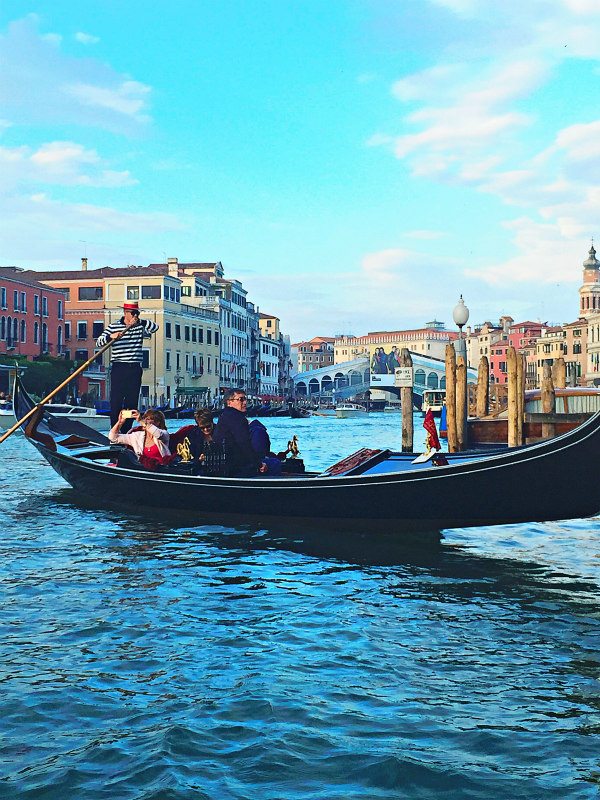
What are the best cities and villages to visit in Italy?
I’ve been to Italy 5 times, but I certainly haven’t hit every part of the country. I’ve yet to ski the Dolomites or soak in the beaches. So I’ll speak to what I know.
- I had the opportunity to stay in Asiago (in the mountainous Veneto region of Northern Italy) a few years ago. It was so quaint and wonderful, that I said I’d definitely go back there one of these days. There are other villages around Asiago that are lovely to check out if staying in that region.
- Also in Northern Italy, a visit to Venice is a must. It’s a unique city built on the water. Waterways are everywhere.
- Verona is worth a visit in Northern Italy too. It’s a quaint city, lovely restaurants and walking around. And it’s home to Romeo and Juliet’s balcony- Casa Giulietta!
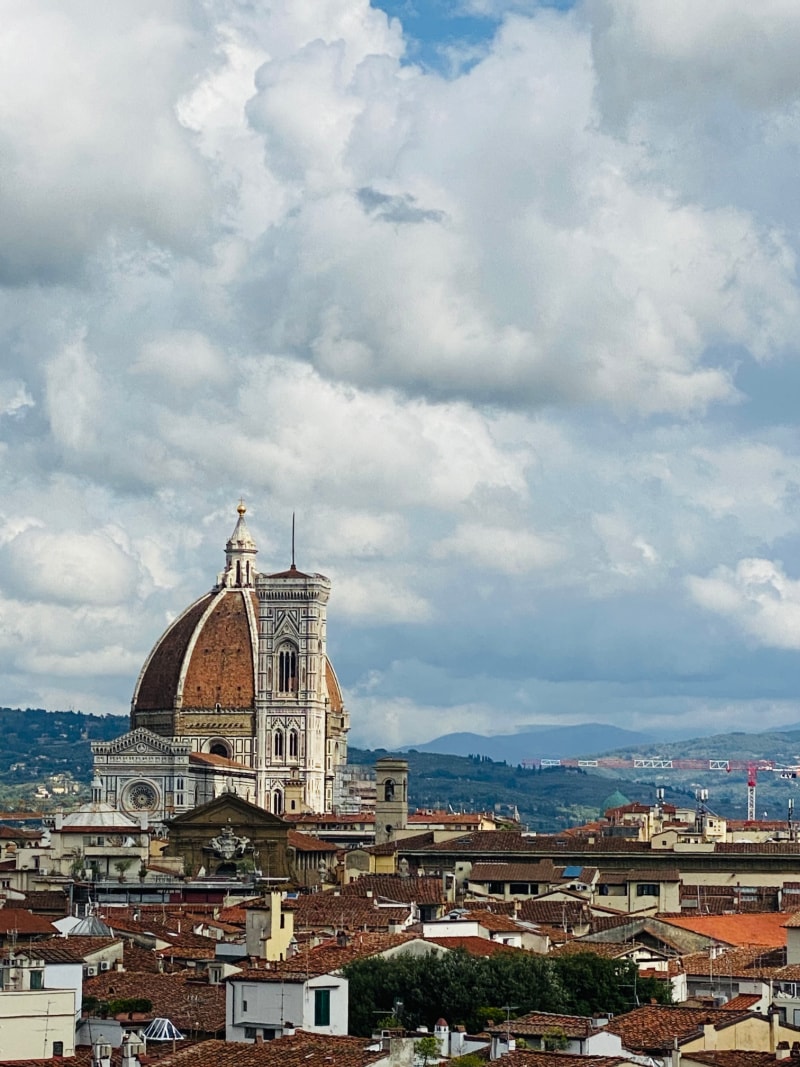
- Florence: It’s gorgeous. Shopping is fun in Florence, but you must absorb the history of it all too. Visit the museums. Michelangelo’s David is in the Accademia Gallery of Florence. Go to the top of the Westin Excelsior Hotel to have a cocktail and take in the sights of the city. You can see everything from up there.
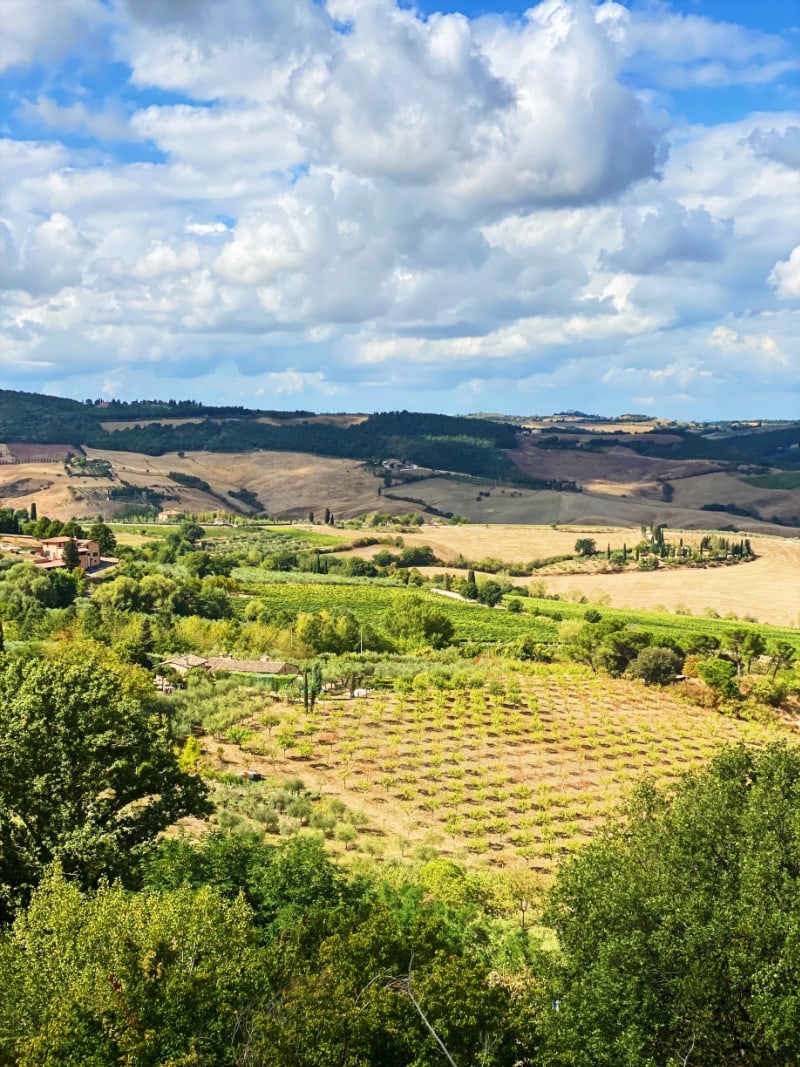
- Here are some places around Tuscany that are worth a look: Siena, San Gimignano, Lucca, Montepulciano and Orvieto. There are so many more! As you travel by car or bus around Italy, you will see towns on hillsides (many of them are walled cities). All of them are probably fabulous. Stop for lunch and take a look. Browse Rick Steves’ book for recommendations too.
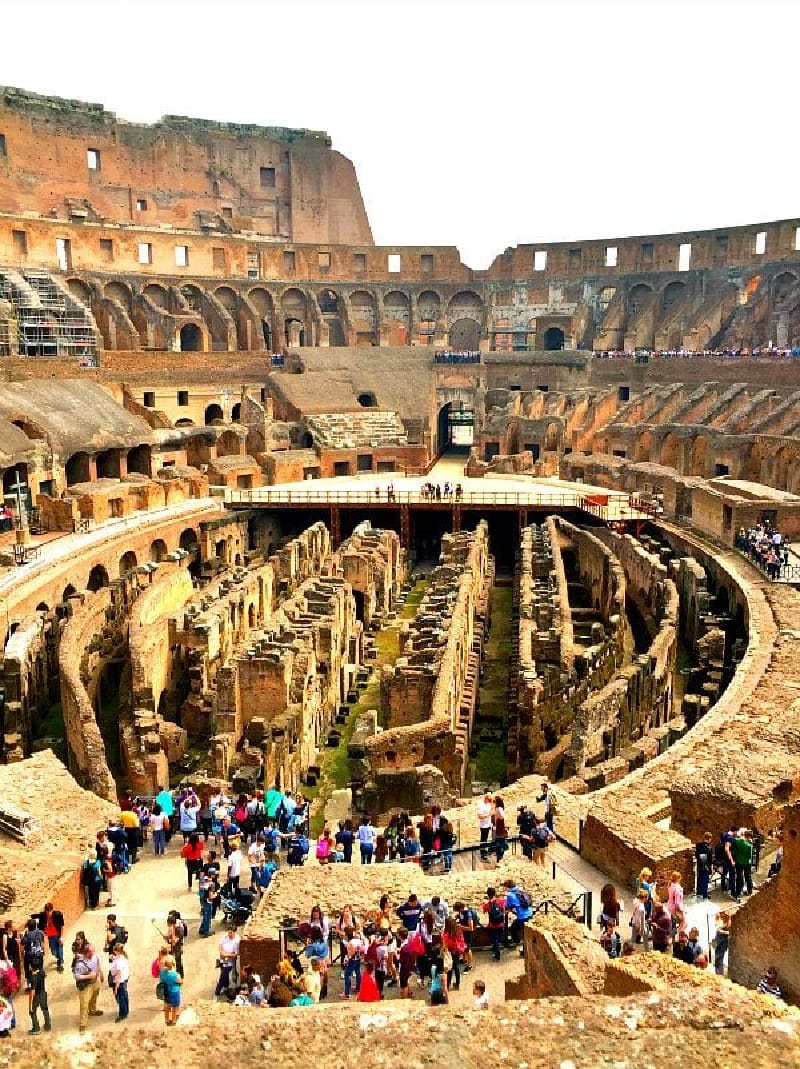
- I’ve visited Milan briefly, but it’s very busy and crowded. I prefer Rome! There are so many ruins to see, and you can spend days just walking around the city to see as many sights as possible. You must go to the colosseum (take a daytime tour) and of course… the Vatican (even if you’re not religious).
- I have not been anywhere south of Rome in the country of Italy so I guess I need to go back soon!
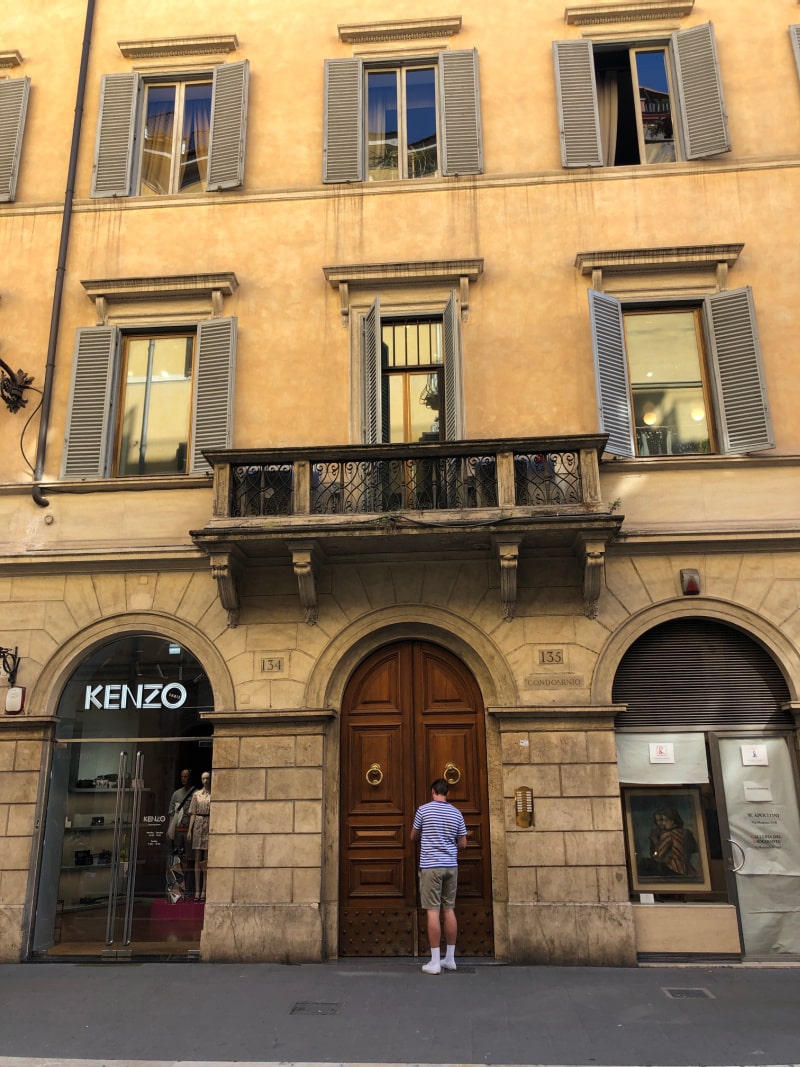
Should I use VRBO and AirBnB in Italy?
Yes! Hotels can be quite expensive, so staying in a rented property can sometimes be more affordable (and more comfortable). Be sure to do your homework. VRBO and AirBnB properties are great options, especially if you are staying somewhere for 3 nights or more. And they often have a washing machine/dryer, so you can clean your clothes before you move on to your next destination. We stayed in a great VRBO right in downtown Rome, and it was close to restaurants, shops and the Trevi Fountain. But we chose another one near the Rome airport that wasn’t as desirable. Both had great reviews, so you’re always taking a chance. In general, we’ve had good experiences in renting through VRBO and AirBnB while traveling around Europe.
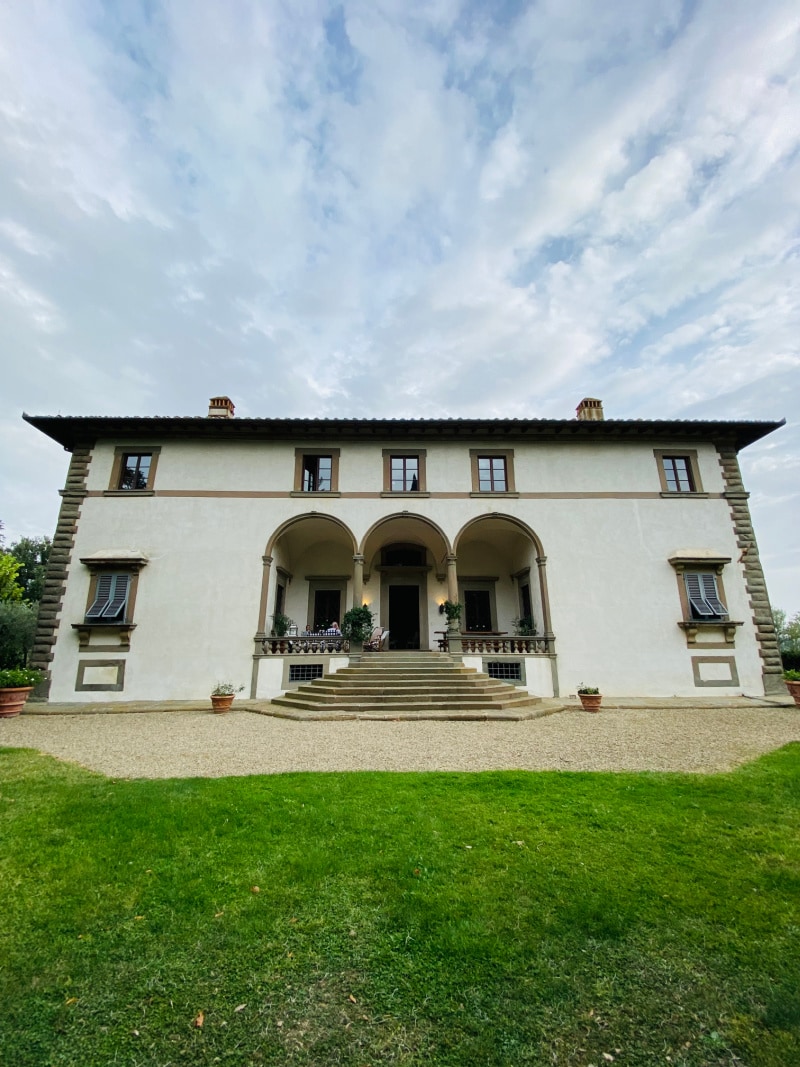
How do I rent a Villa in Italy?
Do some research! Everyone knows that staying in a Villa in Italy has completely romantic aspects to it- especially for those of us who watched the movie, “Under the Tuscan Sun.” If you’re going with a group of people, an Italian Villa can be a great option that might be affordable for all. I went to Italy in 2021 with 4 other couples, and we rented a rather large Villa in Tuscany. There were two other couples that were supposed to have joined us, but they cancelled at the last minute. It was large enough where we weren’t running into each other all day long, but it was sometimes tough to get 10 people organized to go into town and do activities together, etc. We had one person in our group who was a fabulous planner/organizer, and that was a tremendous help. It was also a ways outside of Florence, so a taxi to Florence ran around around 50 euro. 3 to 5 people are the max for a taxi, so keep that in mind if you have a big group. It was a fabulous Villa for relaxation in Italy. We had the opportunity to hire chefs to come in a make dinner, masseuses for massage, there was a pool and many places for relaxing, and a housekeeper came every day. It was truly dreamy, and I must say that it was the experience of a lifetime.
There is also a website that focuses on renting villas in Italy. A few years ago, we stayed in a hotel Villa in Tuscany that is temporarily closed. We were on a luxury vacation tour of Italy, and this company booked the hotel (it looks like they have some other hotels).
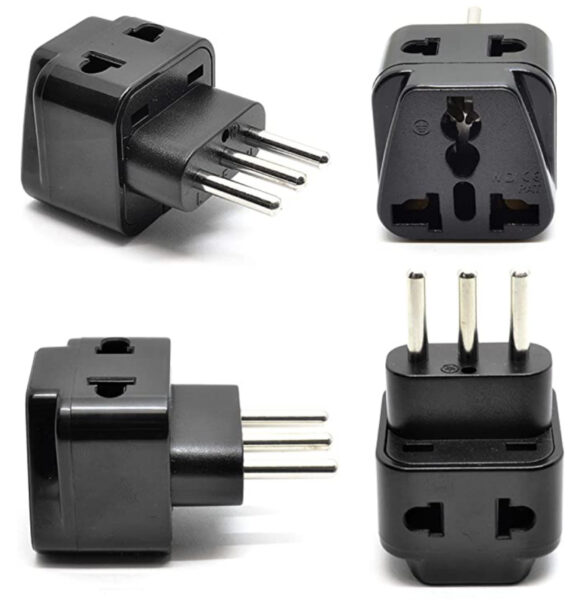
What kind of converter do I need in Italy?
We did some research on this because we wanted to be certain that we had the right converters that would plug into outlets in Italy. I recommend buying a four-pack of power plug adaptors so you have plenty on hand for charging your iPhone, iPad, using a blow dryer, etc. The ones I’ve linked to are the ones you need for Italy.
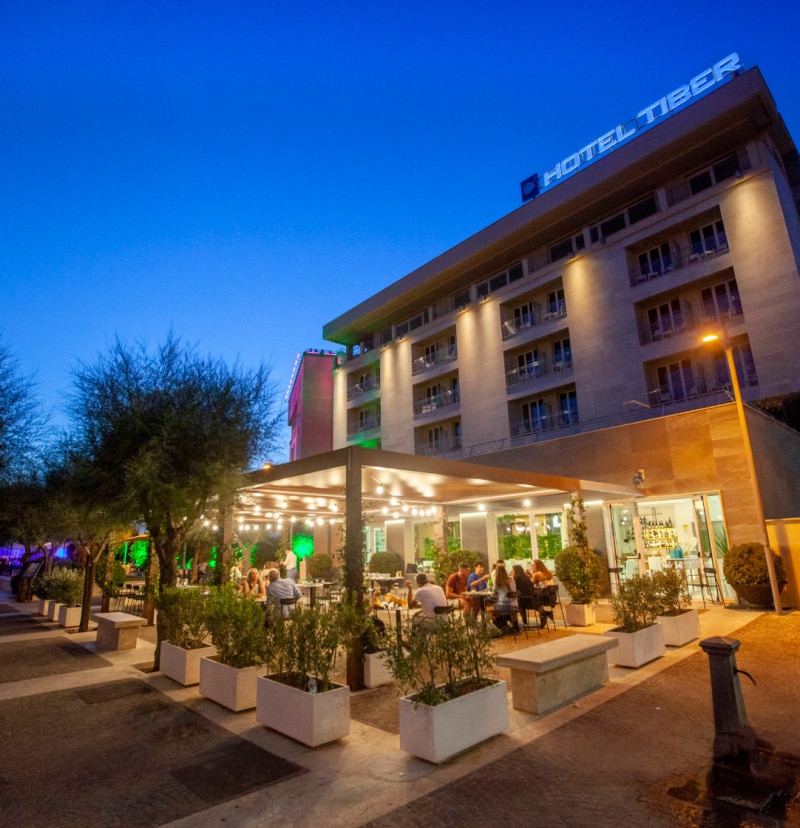
Where to stay near the Rome airport:
If you have a super early flight out of Rome, it’s not the best idea to stay in the city of Rome the night before. Rome is about 40 minutes away from the Rome airport, and traffic can be tricky too. We stayed in a not so desirable AirBnB apartment near the airport, but while there… we discovered a hotel in Fiumicino that we’d definitely come back and stay in next time we fly out of Rome. It’s Hotel Tiber, along the Tiber River. We took a peek inside, and it looks nice and has good Google reviews too. Definitely ask for a water view. The pricing seems great compared to hotels in Rome, and it’s literally a 10 minute taxi or hotel shuttle ride to the airport. Just a short walk from the hotel are a string of restaurants along the river. We had a meal at at one of the restaurants along the river that was fabulous. Walk out to see all of the locals fishing on the Mediterranean too.
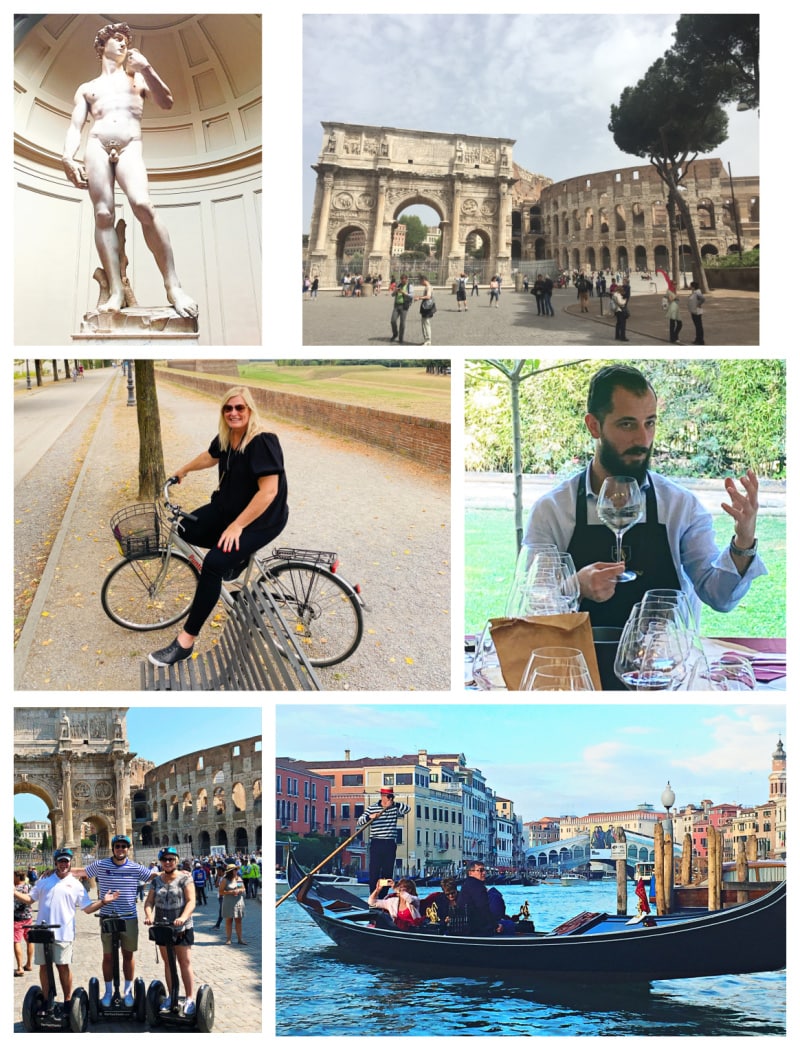
What are the best activities to plan while visiting Italy?
- Wine tasting: it’s everywhere, and it’s a must-go. There are high-end wineries and countryside wineries. They’re all fabulous. You can buy bottles of great wine in Italy for around 10 euro, so keep that in mind! We had wine tastings and lunch at two places in Tuscany on this last trip: Antinori and Tenuta Torciano. We ended up shipping wine, olive oil and truffle oil home to the US from the Tenuta Torciano winery. Both places were lovely.
- Olive oil tasting: It’s an interesting venture, and you’ll learn a lot about the flavors from the different regions. The flavor is dependent upon the where the olive trees are grown (inland vs. coastal).
- Truffle hunting: If you hit the right time of year, truffle hunting is fun to watch and learn. White truffle season is October to early January. Black truffles have both a winter and summer season. We had a truffle hunting education and demonstration while visiting the Tenuta Torciano winery, and then we enjoyed a fabulous lunch there after the hunt.
- See the sites: There are ruins everywhere in Italy. In fact, when you’re walking along the street in Rome (and many cities), there will be ruins next to an H&M in random places. They’re all over the place, and they’re still being discovered too. Bring Rick Steves’ Travel Italy book with you, and take his advice on what sites are worth visiting.
- Segway or bike tour: This can be a fun way to explore the city and get an overview of history. We did a segway tour with a guide in Rome (worth it). WEAR A HELMET (ask me how I know…!) But a bike tour might be more appropriate for those who are aren’t so skilled on a segway). We have rented bikes in smaller, walled cities to explore on our own.
- Museums: I’m not the biggest museum person, but Italy houses some of the most amazing old stuff… so you have to go to at least some of them!
- Shop the smaller towns and walled cities: One of my favorite things to do while traveling through the countrysides of Italy is to stop in the smaller villages, grab lunch and do some shopping. Keep in mind that shops are often closed from 1pm to 3pm for reposo (siesta time). That can be inconvenient if you want to shop after lunch!
- Food Tour: Taking a food tour in Italy can give you a fun overview of different foods. We did one in Rome through Eating Europe that was quite fun.
- Cooking Classes: I’ve done this twice in Italy. The first one was in a farmhouse at the Dianella winery in Vinci (also a bed and breakfast). We chopped veggies for bolognese, rolled and cut handmade pasta and prepared an Italian dessert. Then they cooked it all and served us dinner. The next time I did a cooking class, it was a more extensive all-day class at Chef Paolo Monti Cooking School in Lucca. This was more of a kitchen environment, and we were involved in helping to prepare every course of a big Italian meal. They gave us the recipes too. Both were fun experiences.
- Hiking: There are plenty of mountains in Italy to explore on a hike, but it’s fun to hike the coastal areas like Cinque Terre too.
- Ski the Dolomites: This is something I have not done! Check out this travel blogger who has published a travel and ski guide for the dolomites.
- Visit the beaches: Consider Amalfi coast, Sardinia, Sicily, Capri and Ischia. Those are all on my Italy travel bucket list!
- Boat on Lake Como: Boating on Lake Como is another bucket list item for me. Imagine cruising along and running into George Clooney! I think everyone must be thinking that when they’re in Lake Como.
- Ride a Gondola in Venice: Yes, I know it seems like a touristy thing to do in Venice, but you have to do it. I thought it was a lot of fun, and it gives you an overview of the waterways of Venice too.
- Do you have other must-do activities to suggest? Please share in the comments!
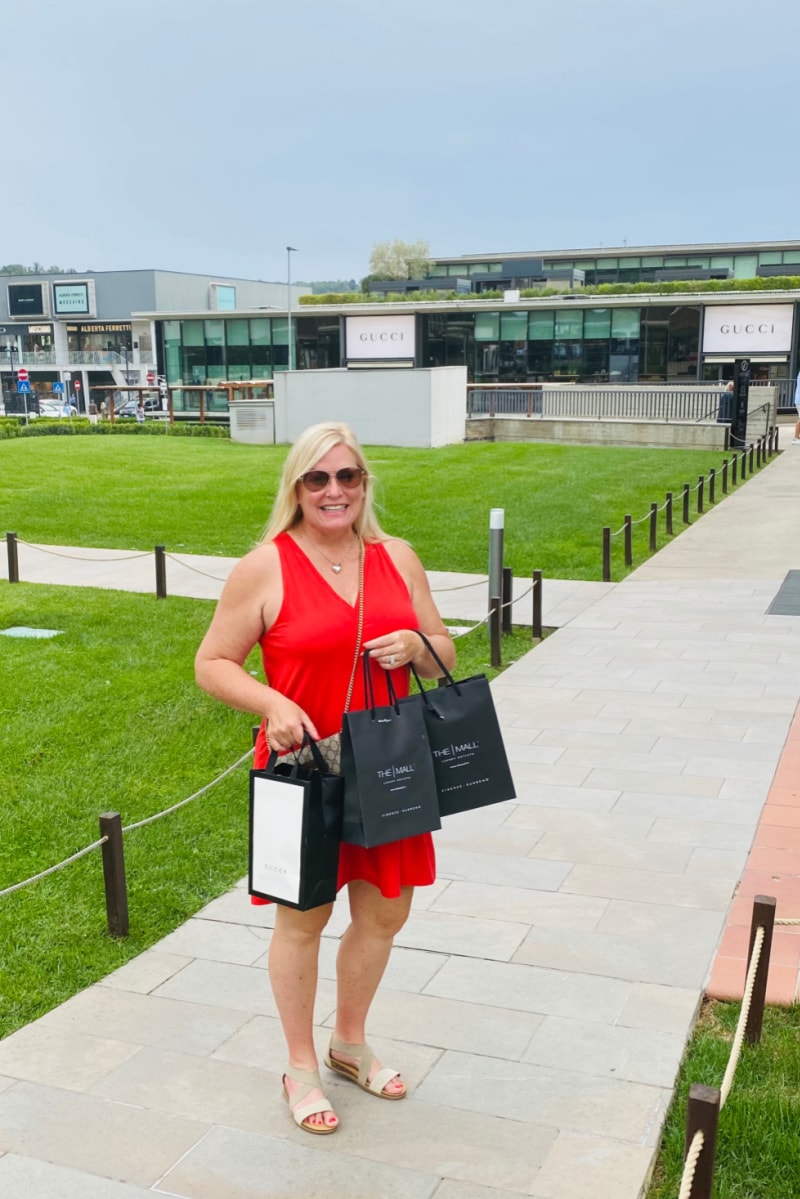
Is it cheaper to shop the designer stores in Italy?
It can be! I’ve compared prices at designer stores like Gucci, Burberry and Yves St. Laurent in London, Paris, Rome and Barcelona and they are all pretty similarly priced. I find the prices to be a bit less than what you’d pay in the United States. They also offer a VAT tax refund. Collect the receipts for your items, fill out the paperwork for the VAT tax refund at the airport, and you will get a refund for the taxes paid in Italy for the items you purchased. It will show up as a credit on your credit card or in your bank account several weeks later. If you are lucky enough to be in a part of Italy that has luxury designer outlets, definitely go and check them out! We went to the Mall Firenze, and it was definitely worth it. They had great deals on designer purses, belts, sunglasses and clothing. They had Gucci, Versace, Burberry, Cavalli, Ferragamo, Dolce & Gabbana and more. Be sure to go to the airport early so you have time to look for the VAT refund area. It’s not difficult to do. TIP: bring your passport with you when shopping. The nicer stores will ask for your passport to process the receipt for a VAT refund, and some of them can even take care of doing the refund paperwork for you!
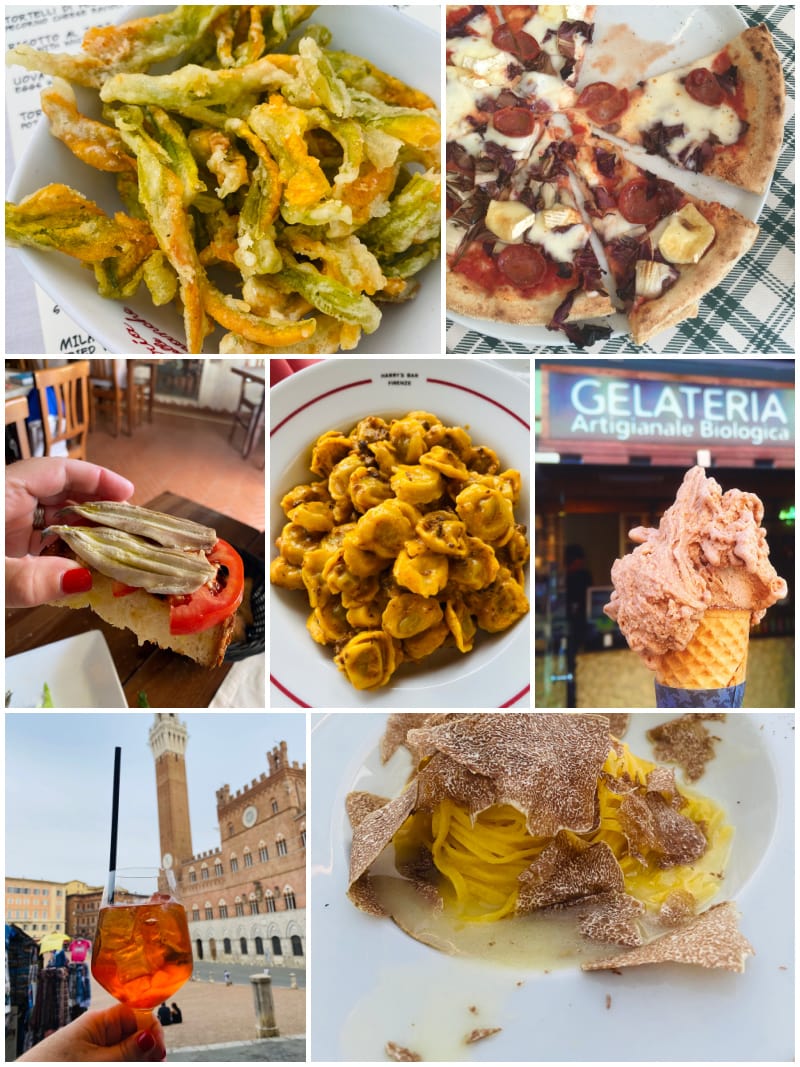
What are the best foods to try in Italy?
There are a few things to know. Restaurants in Italy don’t really open for dinner until 7:30 or 8pm, so plan to eat later. You will be asked if you want still or sparkling water, and you will be charged for either of them. Italians don’t drink tap water in restaurants. You will probably be brought a basket of bread (and it might appear on your bill). Ask for olive oil and balsamic vinegar to go with it, so you can drizzle those on your bread plate with a little salt and pepper for dunking the bread. And you have to ask for the check at the end of your meal. Italians don’t wish to rush you out of their restaurants, so they don’t bring the bill automatically. Here are the foods in Italy that you definitely want to try while visiting:
- Pasta: eat every kind! Keep in mind that pasta is served “al dente” in Italy. It’s definitely not what we are used to, but it might make you change your pasta prep at home! Most specifically, make sure you try carbonara, cacio e pepe, spaghetti pomodoro, lasagna and cannelloni.
- Spaghetti Neri (Squid Ink Pasta) while in Venice: This is pasta made from black squid ink. You’ve gotta try it.
- Fried Squash Blossoms: Summer into early fall is when you will have the opportunity to try fried squash blossoms. Yum.
- Foccaccia or other breads: Italians know how to make bread. Try all different kinds, and ask for olive oil for dunking.
- Bruschetta: Again, an Italian specialty. Some varieties are simple with fresh tomatoes, and some have anchovies. Try it all!
- Truffles: If visiting Italy during truffle season, take advantage of that and order things that highlight truffles- like pasta.
- Bistecca Fiorentina: This is a traditional florentine steak made with rosemary, sage and olive oil. They do a great job with this traditional steak.
- Pizza: It’s everywhere, and it will be different than what you’ve had in other places. Try it… many times!
- Bellinis in Florence: Harry’s Bar in Florence was the inventor of the original bellini. When in Florence, go to Harry’s for Bellinis.
- Aperol Spritz: This is a traditional Italian cocktail. You may not love it (aperol is bitter), but you’ve gotta try it at least once!
- Gelato: My rule when traveling in Italy is to have a daily gelato. Get one every day. And get multiple flavors!
- Tiramisu: You’ll have some amazing tiramisu while dining in Italy.
- Cappuccino and/or espresso: Start your day or end your evening with one of these. The Italians make the best coffee drinks.
Arrivederci, Italy (until next time!)
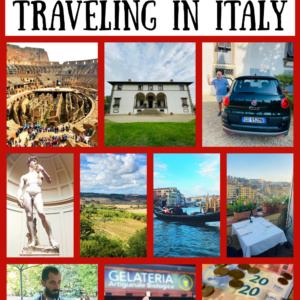
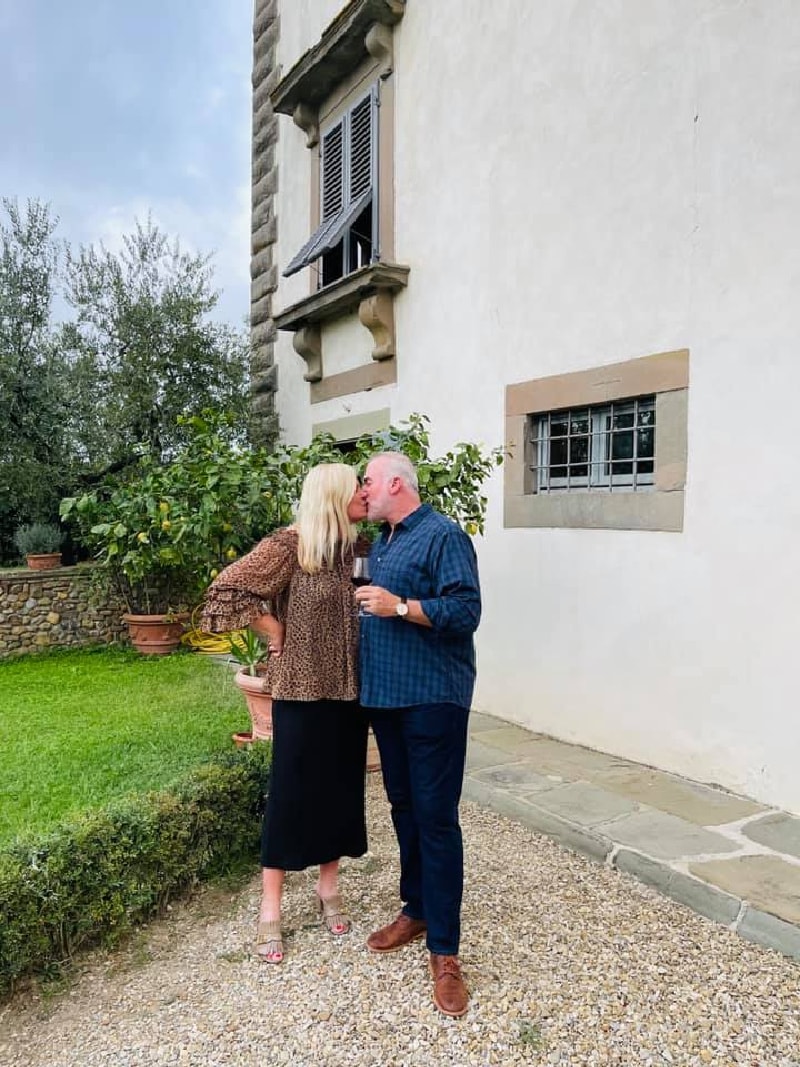
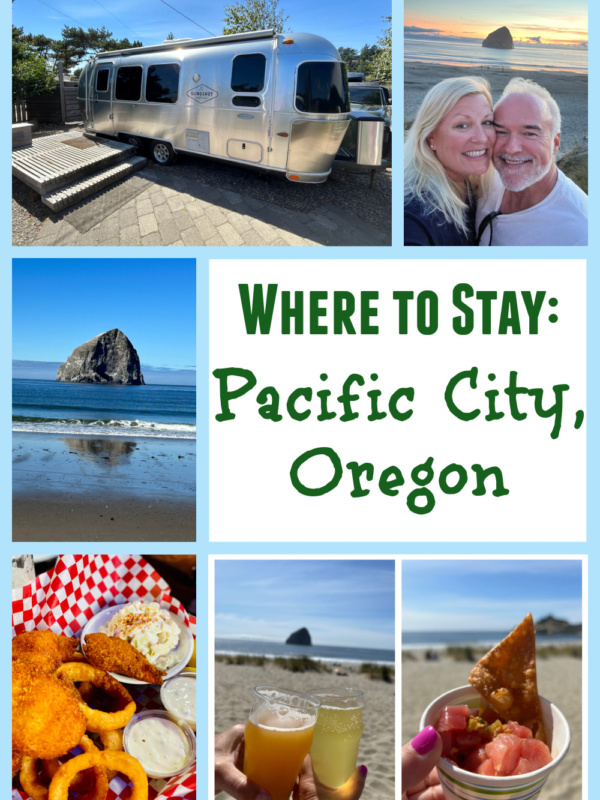
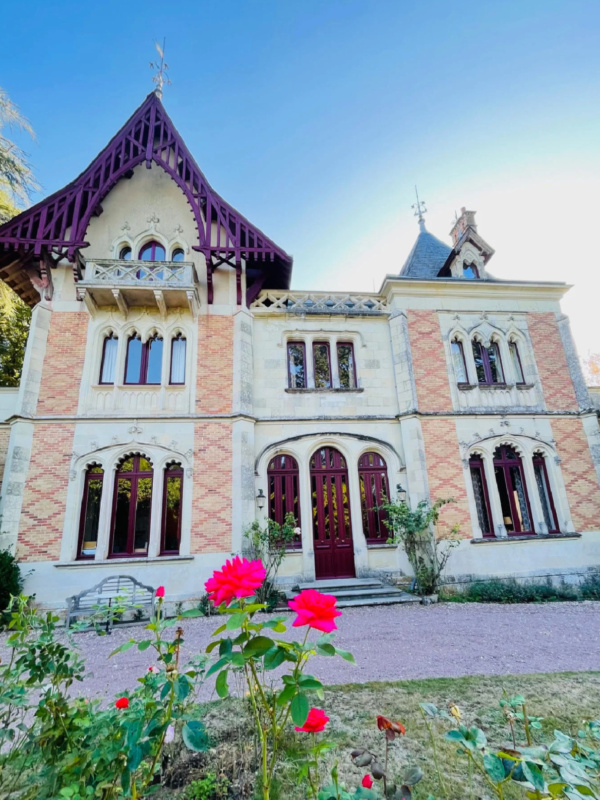
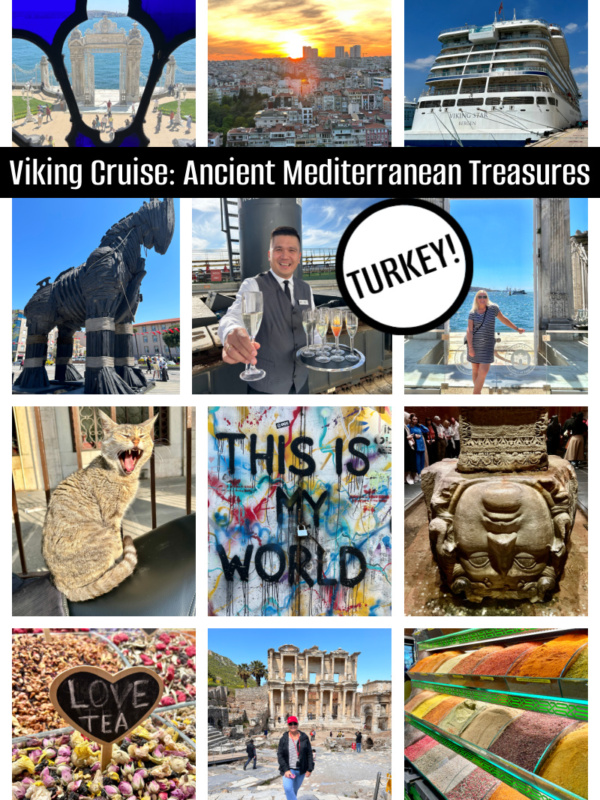
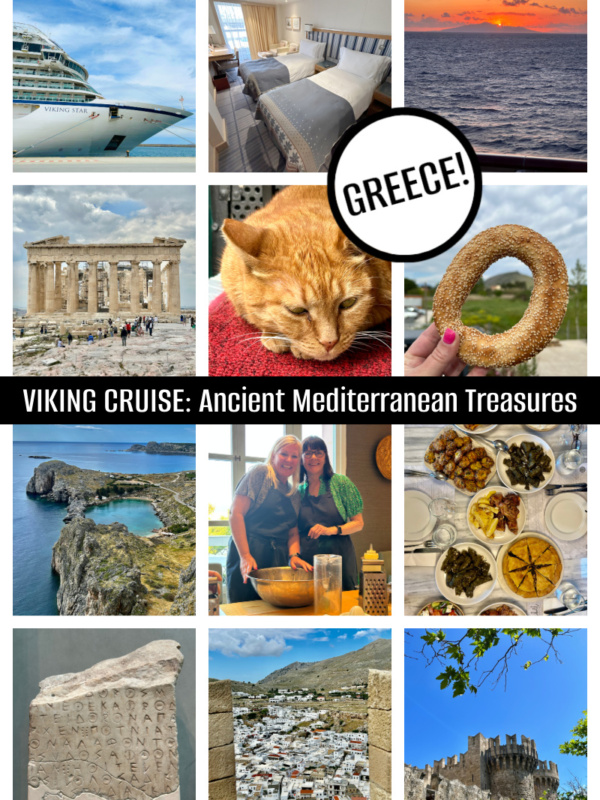









I loved your tips…thank you so much! I’m traveling to Italy for the first time later this month. Are there any translating mobile apps you recommend?
I don’t remember which one we used, but they’re all pretty good! It’s nice if you can find one that you can hover over restaurant menus and it automatically translates!
You must visit the south of Italy – we stayed in Sorrento and drove the Amalfi Coast! It’s a very crazy drive with super narrow roads but we had a small car so did ok. We stayed in a wonderful hotel – Antiche Mura Hotel and would highly recommend it! We also took the train from there to Pompei – also a must see when visiting the Amalfi coast.